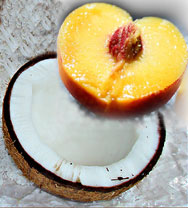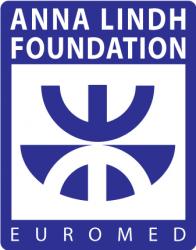 Even if we expect differences when we travel or meet foreigners in our own countries – the best and most intensive intercultural learning is always accompanied by small culture shocks. Our show today will focus on the Anna Lindh Foundation and in particular two young, influencial bloggers from Israel and Tunisia who I met in Luxemburg at the bloggers’ meeting, so our main topic will be the “culture of blogging”. We will also hear about an American exchange student at RheinAhrCampus and her stereotypes about Germany. Oh yes, and we will be talking about peaches and coconuts!
Even if we expect differences when we travel or meet foreigners in our own countries – the best and most intensive intercultural learning is always accompanied by small culture shocks. Our show today will focus on the Anna Lindh Foundation and in particular two young, influencial bloggers from Israel and Tunisia who I met in Luxemburg at the bloggers’ meeting, so our main topic will be the “culture of blogging”. We will also hear about an American exchange student at RheinAhrCampus and her stereotypes about Germany. Oh yes, and we will be talking about peaches and coconuts!
absolutely confused
I met Erin from Texas and she told me about her experiences in Europe and why she suffered a culture shock or maybe several small shocks at the beginning. She noticed that we use very different street signs and traffic lights from the US and that we drive such tiny cars. But also, the everyday behaviour of people in the street struck her as rather different. When you meet Germans for the first time they don’t appear as friendly as Americans but once you have got to know them as friends it seems that you’ll never lose this friendship over time. Let us hear what emotions Erin had and how she confronted these confusing situations.
absolutely fruitful
As you heard, it takes Germans a little longer to “open up” to foreigners, whereas in the US it seems much easier to get in contact with people. Some intercultural scholars describe this well-known phenomenon in a comparison with the fruits, peaches and coconuts. “Peach-people” are all nice soft, smiling, and sweet on the outside and it is easy to get in touch with them and have a pleasant, initial conversation but afterwards you may hit a hard kernel in the middle and this seems almost impossible to penetrate. These people may be very friendly when you meet them as complete strangers, for example on public transport, but would perhaps not dream of letting you into their inner circle of friends or invite you to their family homes.
On the other hand you have the “Coconut-people” who have their hard and sometimes unwelcoming shell on the outside. So when you meet them for the first time they seem unfriendly and reserved. However, once you have penetrated that hard shell you will find out that they are much softer and sweeter on the inside.
Often Germans experience Americans as “peaches” and Americans see Germans as “coconuts”.
absolutely half baked
Now I’d like to introduce you to Carmel Vaisman, a communication scholar from Israel who I met at the bloggers’ training in Luxemburg. Carmel is a passionate blogger, very busy sharing her very interesting experiences in Israel and abroad with others in the world. Most recently we heard about her “find Lost”-experiences in Hawaii.
absolutely writing
I’ll present you another really astonishing young blogger Samar Samir Mezghanni from Tunisia. She has been writing children’s books since she was 10 years old – so at the time she was a child herself. What an interesting idea to publish children’s books written by other children who are barely older than themselves. This way Samar gained an entry into the Guinness book of world records as “Youngest Writer in the World” and two years later as “Youngest Most Prolific Writer in the World”. I had the privilege of meeting her in person and experiencing this bundle of energy. She told me about what kind of stories she writes about, what gave her the idea to write children’s books and how she became a blogger.
The next show will be coming to you on 16 October from Anne Fox in Denmark.
So long…stay tuned!
The host of this show is: Dr. Laurent Borgmann
Editor: Dino Nogarole

 Today we have focused on innovative initiatives for intercultural training in the Euro-Mediterranean region and around the world. Please listen to some unusual and innovative approaches to engaging young people in intercultural dialogue.
Today we have focused on innovative initiatives for intercultural training in the Euro-Mediterranean region and around the world. Please listen to some unusual and innovative approaches to engaging young people in intercultural dialogue.